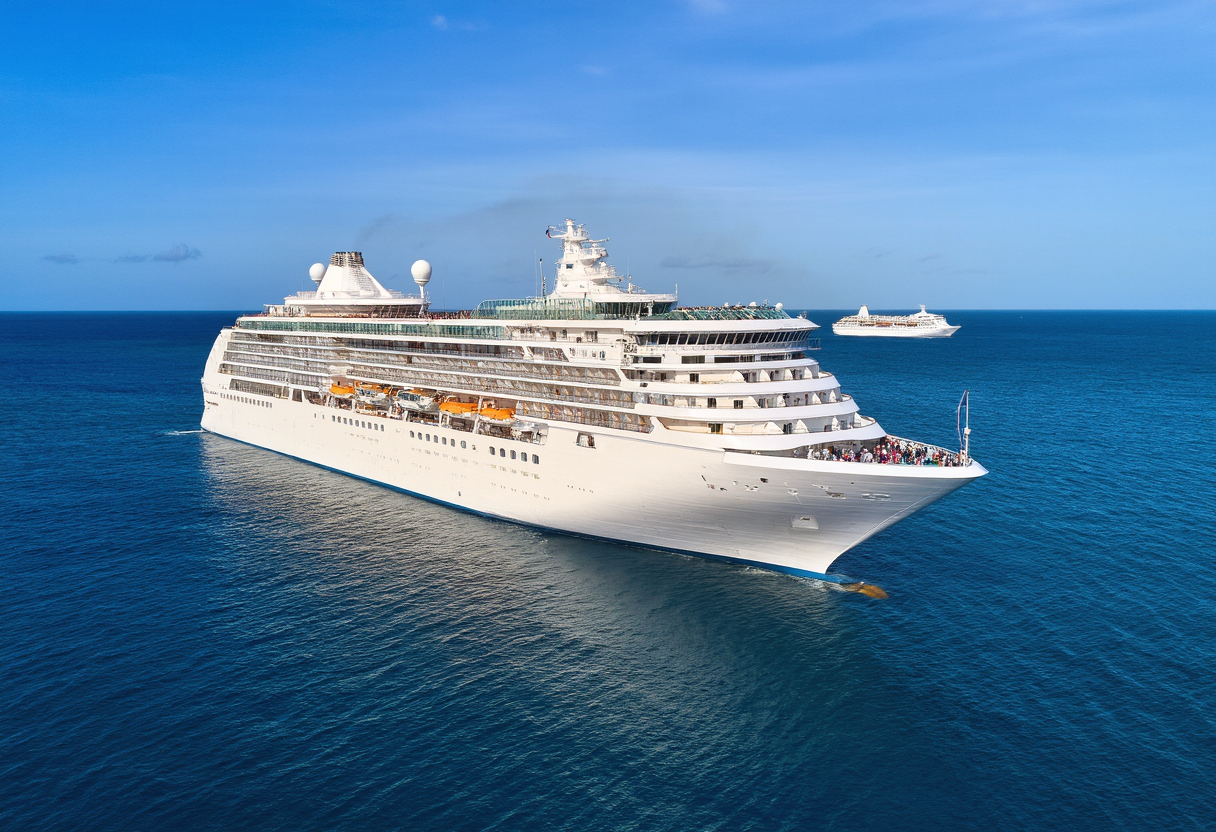Unlocking the Secrets of Cruise Tourism: A Comprehensive Guide
Cruise tourism is on the rise, offering unique experiences to travelers around the globe. This guide delves into the fascinating world of cruise tourism, exploring its economic impact, cultural exchanges, and emerging trends. Discover how cruise vacations are transforming the way people travel, connecting diverse cultures on the high seas.
Understanding the Growth of Cruise Tourism
Cruise tourism has experienced remarkable growth in recent years, becoming a significant segment of the travel industry. The allure of cruise vacations lies in their ability to combine luxury accommodation with the adventure of visiting multiple destinations. As cruise tourism continues to evolve, it adapts to changing consumer preferences and emerging travel trends. Travelers are increasingly seeking immersive experiences and cultural enrichment, making cruise tourism a unique offering that caters to these desires. Furthermore, the cruise industry is investing heavily in sustainable practices, showing a commitment to protecting the environments it operates in. This focus on sustainability is pivotal as it aligns with global efforts towards environmental conservation, making cruise tourism more appealing to eco-conscious travelers. Additionally, cruise lines are enhancing onboard amenities and excursions, ensuring that every journey is memorable and enriching. In this dynamic environment, cruise tourism is poised for further expansion, attracting ever more enthusiasts from around the world.
The Cultural Impact of Cruise Tourism
Cruise tourism not only enhances economic activity but also fosters cultural exchange on an unprecedented scale. Passengers from diverse backgrounds come together to share experiences, traditions, and perspectives in a unique setting. Ports of call become vibrant hubs of interaction, where travelers can immerse themselves in local cultures, cuisine, and history. This cultural blend enriches the social fabric of both travelers and hosts, making cruise tourism a force for global connection. However, it is essential to acknowledge the potential challenges that arise from the increase in tourist exchanges. Communities may face overwhelming tourist numbers that can strain local resources and infrastructure. Responsible cruise tourism practices are crucial in mitigating these impacts, ensuring that cultural interactions remain positive and beneficial for both visitors and local populations. As the industry progresses, fostering understanding and respect between cultures will be key in maximizing the cultural benefits of cruise tourism.
The Economic Benefits of Cruise Tourism
The economic impact of cruise tourism is profound, generating billions in revenue and creating numerous jobs worldwide. Ports that receive cruise ships benefit from increased foot traffic, leading to a boost in local commerce, including restaurants, shops, and attractions. In addition, cruise tourism stimulates employment in sectors such as hospitality, transportation, and excursion services. This economic development is particularly crucial for small island nations that rely heavily on tourism as a primary income source. As cruise lines collaborate with local businesses to provide unique experiences, the mutual benefits become evident. However, stakeholders must remain vigilant to ensure that local economies do not become overly reliant on cruise tourism, diversifying their economic strategies to foster long-term sustainability. Effective planning and collaboration among various sectors will bolster the beneficial impact of cruise tourism, creating a resilient model for future growth.
Emerging Trends in Cruise Tourism
The cruise industry is witnessing several emerging trends that are reshaping its landscape. Increasingly, travelers seek more immersive and personalized experiences when selecting their cruise vacations. This demand has led to the rise of themed cruises, where interests such as culinary arts, music, and wellness become focal points of the journey. Additionally, the utilization of technology, such as mobile applications and virtual reality, enhances passenger experiences both onboard and during excursions. These innovations not only improve user engagement but also streamline operations for cruise lines, making them more efficient. Sustainability remains another critical trend, with many companies committing to reducing their carbon footprint and minimizing waste. As cruise tourism continues to evolve, staying ahead of these trends will be crucial for sustaining growth and meeting the changing expectations of travelers. Recognizing and adapting to these shifts will ensure cruise lines remain competitive and appealing.
Unique Challenges Facing Cruise Tourism
Despite the positive aspects of cruise tourism, the industry faces challenges that must be addressed proactively. One significant concern is the impact of climate change, which poses risks to coastal destinations and the sustainability of cruise operations. The growing frequency of extreme weather events highlights the need for the cruise industry to adopt resilient practices and develop contingency plans. Moreover, health crises, such as the COVID-19 pandemic, have revealed vulnerabilities in operational protocols and passenger safety. The cruise tourism sector must prioritize health measures to regain trust among potential travelers. Additionally, cruising issues related to over-tourism require a balanced approach, as popular destinations may struggle with the influx of visitors. Implementing strategies to distribute tourist footfall across a wider range of ports and exploring less frequented destinations could alleviate these pressures. Addressing these challenges will ensure the longevity and respectability of cruise tourism.
The Future of Cruise Tourism
As cruise tourism charts its course into the future, its potential seems boundless. Innovations in ship design, technology, and sustainable practices will continue to redefine the industry. The focus on responsible tourism will strengthen relationships between cruise lines and the destinations they visit, ensuring mutual benefits. With a commitment to enhancing the cruise experience, providers can expect a robust demand as travelers seek new adventures on the high seas. The integration of personalized services and safety protocols will bolster confidence among potential travelers, paving the way for a resurgence in cruise tourism popularity. Looking ahead, stakeholders must be prepared to adapt and evolve, seizing opportunities in this vibrant sector while remaining aware of their responsibilities to the environment and local communities. Ultimately, it is this balance that will secure a thriving future for cruise tourism.
